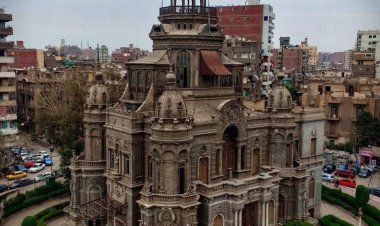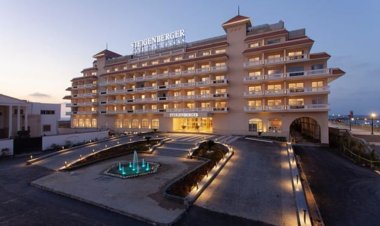“Al-Aqsa Flood” paralyzes Israel.. The occupation economy suffers billions in losses
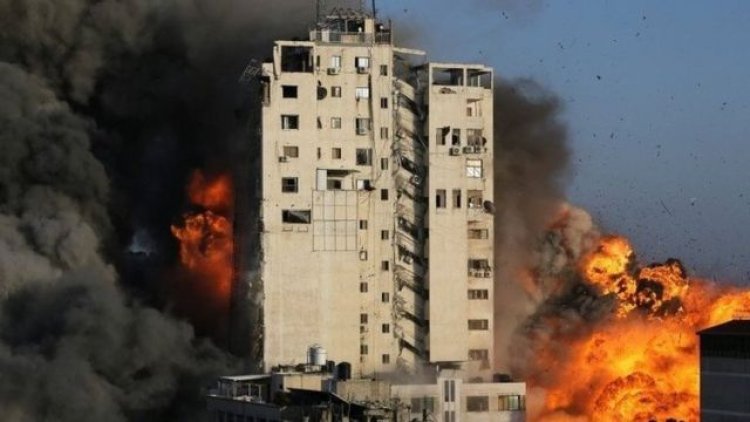
Several airlines canceled their flights to Tel Aviv, following the military attack launched by Hamas on the occupation, according to arrival data at Ben Gurion International Airport published on the Internet. Tel Aviv Stock Exchange indices also recorded losses of more than 6% a day after a large-scale attack on Israel. As reported by Cairo News, according to Reuters.
The losses of the Tel Aviv Stock Exchange indices worsened to more than 6%, after they opened with a decline of 4%, today, Sunday, while government bond prices fell by up to 3%, a day after a large-scale attack launched by Hamas and the Palestinian resistance factions on sites in Israel. According to Reuters.
Hotels also reported frequent calls to service centres, and cancellation of future bookings by tourists. Danny Lipman, CEO of Atlas Hotels, told the Israeli website The Marker: “There are massive cancellations of future reservations... and many tourists in Jerusalem and Tel Aviv are looking for flights to escape.”

Canceled flights
Among the companies that canceled their flights were Lufthansa, Emirates Airlines, Ryanair, Aegean Airlines, American companies, and even Air France, but the authorities did not stop commercial flights at Ben Gurion International Airport, nor at Ramon Airport near Eilat, which is the second international airport, according to Agence France-Presse.
Meanwhile, the Israeli website "The Marker" said that the Israelis are stranded abroad, while Swiss Airlines, Wise Air, Turkish Airlines, and LOT Polish Airlines have already canceled their flights in the morning.
In the evening, Delta, United, Virgin, EasyJet, Transavia, Ryanair, Aegean, Iberia and Georgian canceled their flights to Israel.
Businesses that normally open on Saturdays, including grocery stores, cafes and pharmacies, were closed across Israel, and business owners said they were finding it difficult to continue their routine activities due to the war.
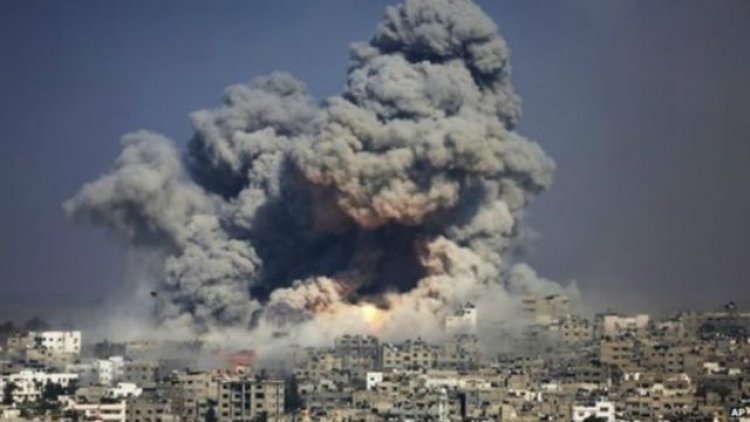
Closed shops
The shops in the Zikhron Mall were also closed, and vehicles arriving at the complex stopped at the entrance and turned back.
Branches of the Super Pharm chain also faced operational difficulties, and the branch on Allenby Street in Tel Aviv, which was open seven days a week, was closed. Café Betha and Griga on the city's Rue La Fontaine is closed, although it is usually open on Saturdays and holidays.
Some consumers told Ther Marker that they rushed to stores to buy items, so as not to be stuck later if an emergency occurred and they were forced to stay at home.
Chaos prevailed in vital services in the Israeli settlements around the Gaza Strip following the “Al-Aqsa storm” carried out by Hamas and the Palestinian factions from the Strip.
A settler in Ashkelon, Yitzhak Mor, reported to the Haaretz newspaper that electricity and internet services had been interrupted since 10 a.m. Jerusalem time, and the Israeli electricity lines supplying Gaza with electricity were also cut.
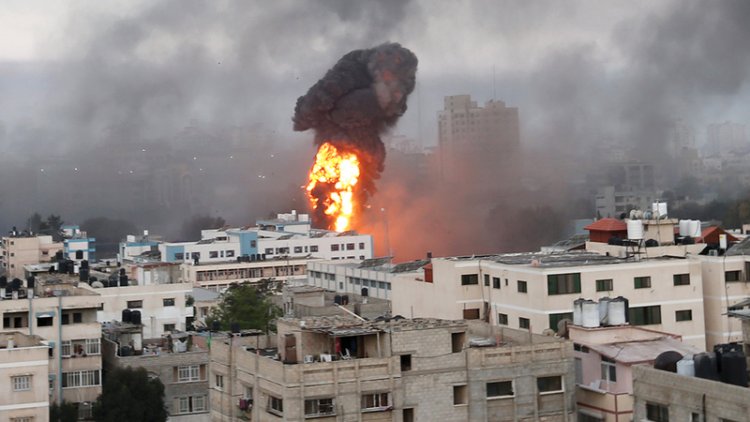
Huge fires broke
The Jerusalem Post newspaper said that huge fires broke out in Jerusalem, Ashkelon and Netivot amid rocket attacks, noting that firefighters are currently working to put out dozens of fires in the areas that were subjected to Hamas rocket attacks.
The Israeli website "Calcalist" said in a report published yesterday, Saturday, that it is not unlikely that the difficult events in the south will lead to violent fighting in the Gaza Strip, the likes of which Israel has not witnessed in more than a decade, as the costs of such combat rounds will reach billions of shekels. To direct and indirect costs. According to past wars, a round of combat costs between NIS 100-250 million ($26-65 million) per day, depending on the arena and scope of the fighting.
The second part of the direct expenses is compensation for injured civilians or whose property has been damaged, but it is difficult to measure indirect costs, as these costs include losses of businesses that remain closed, damage to tourism, and so on.
Second Lebanon War in 2006
The costliest war in recent years was the Second Lebanon War in 2006, which lasted 34 days. The total cost from the state treasury, which includes the Israeli army’s expenses on combat and compensation, amounted to about 12 billion shekels ($3.12 billion in today’s money).
The loss of production from Operation Protective Edge in 2014, by far the most significant round of fighting in the Gaza Strip since the Israeli withdrawal in 2005, which lasted 50 days and cost NIS 3.5 billion, was about 0.3% of that year’s production.
According to the Bank of Israel's assessment, the main loss was the loss of income from the tourism industry in the region of about 2 billion shekels, and the military cost of Operation Protective Edge amounted to about 7 billion shekels, in addition to compensation worth 1.7 billion shekels, so the total cost amounted to 8.7 billion shekels.
Direct costs include expenses for the Israeli army and security services, from paying for ammunition and logistical equipment to paying for reserve days and the costs of rehabilitating the wounded.
The raids launched by the Israeli occupation army on the Gaza Strip, since yesterday evening, Saturday, resulted in the death of 313 Palestinians, including 20 children, and the injury of 1,990 others, according to an update by the Palestinian Ministry of Health, this Sunday morning.
The Israeli occupation army launched intensive raids on residential buildings, homes and towers, most notably the Palestine Tower, which includes 100 residential apartments in the western Gaza Strip. It also bombed the homes of leaders in the Hamas movement.
The occupation army announced the implementation of Operation “Iron Swords” against the Gaza Strip, in response to the “Al-Aqsa Storm" operation launched by the Hamas movement, which left hundreds dead, wounded, and prisoners.


 Shrouq
Shrouq 









